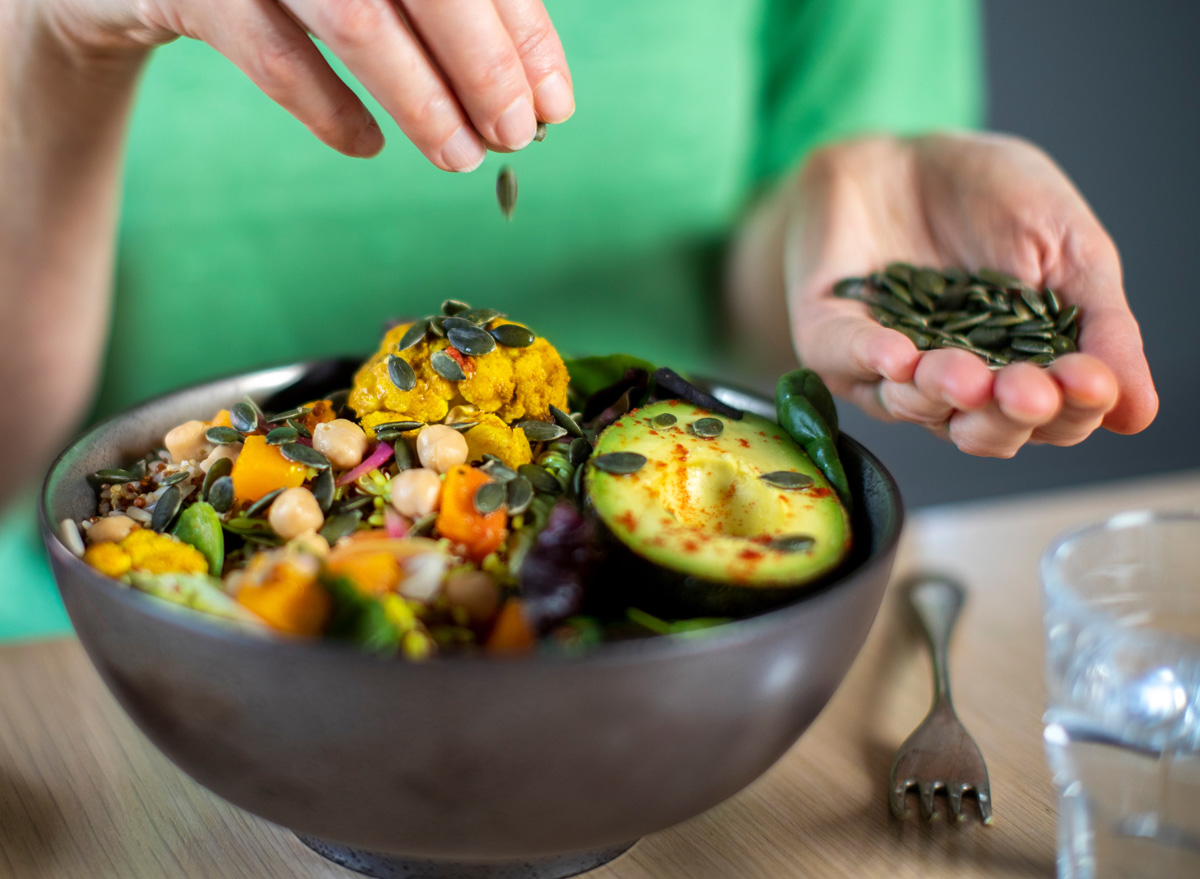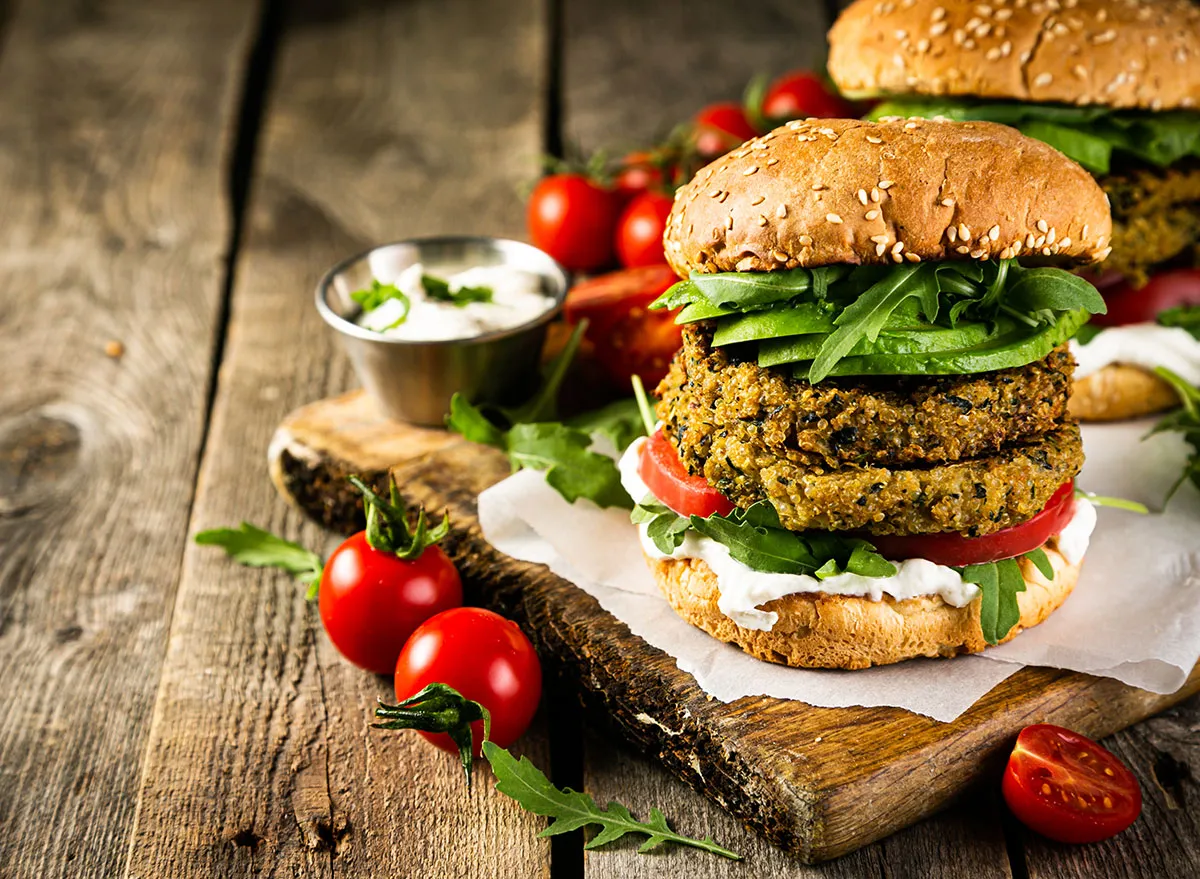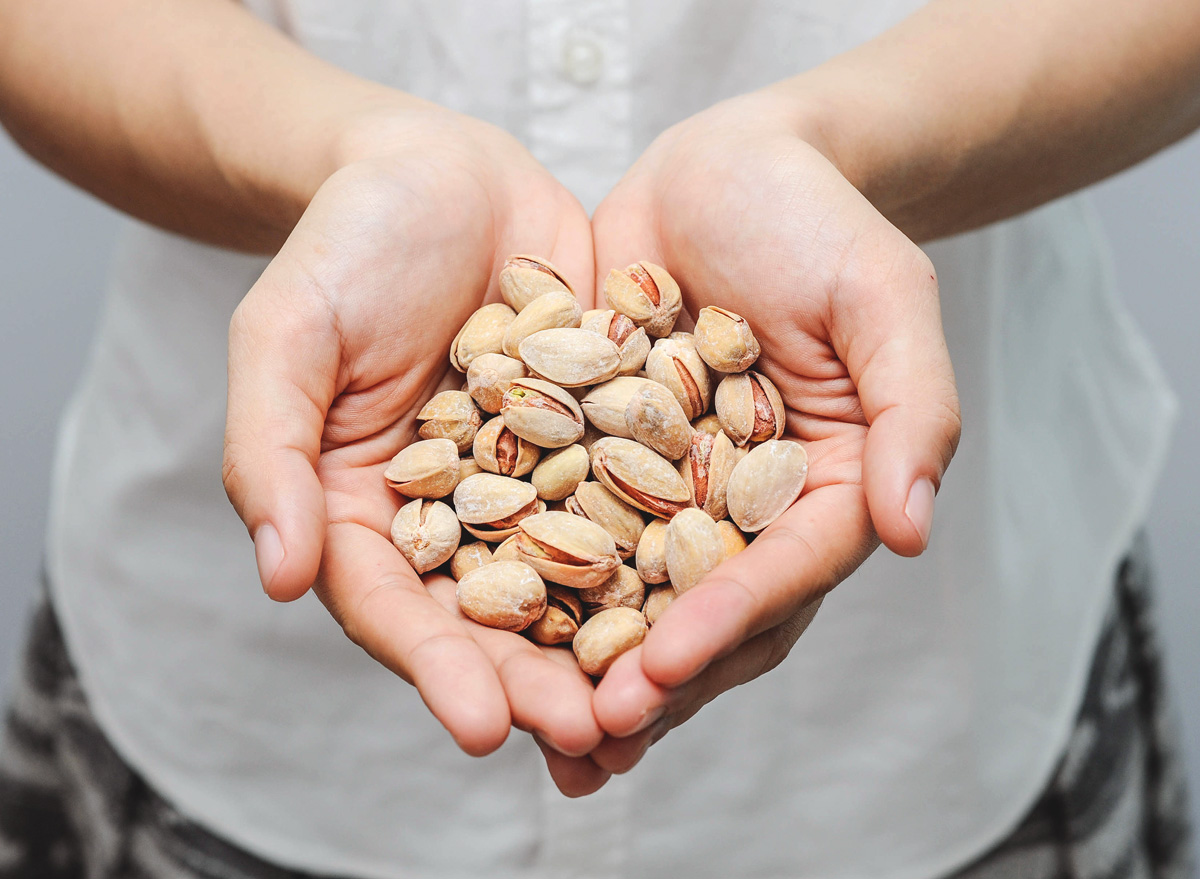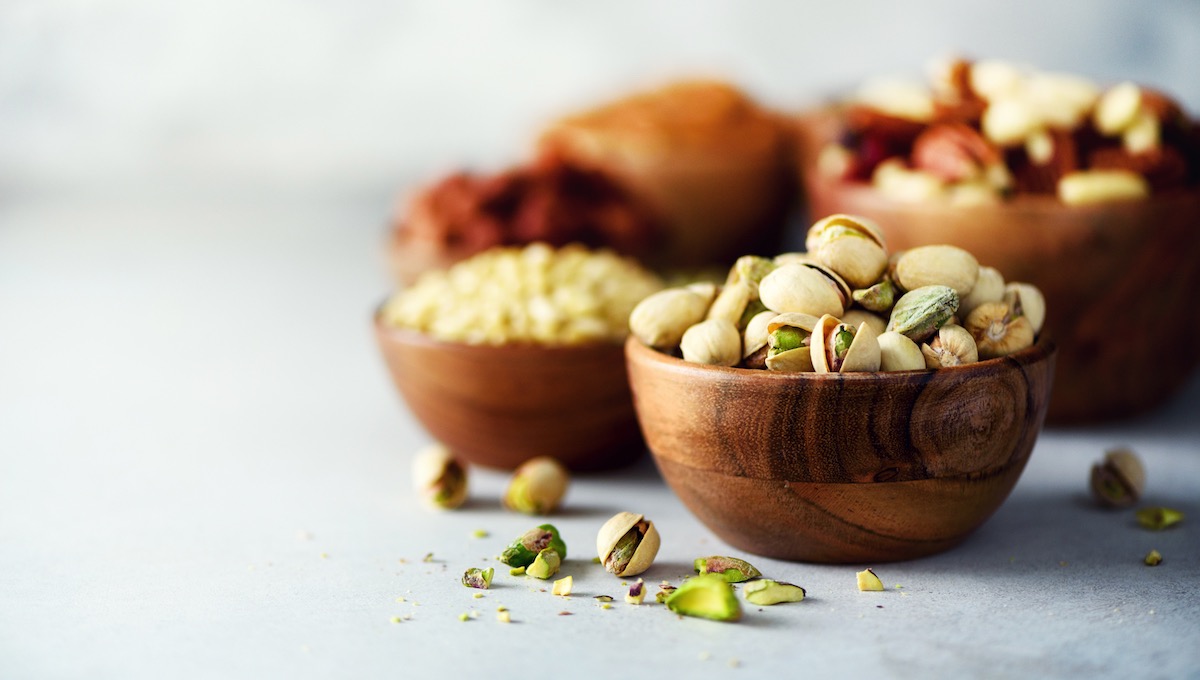11 Benefits of Eating Plants, According to Science

In partnership with Wonderful Pistachios
2021 should be called “The year of the plant.” What was once a foodie trend is now a huge movement, as plant-based eating—and its benefits—have officially entered the mainstream. At its core, the plant-based diet couldn’t be more simple: It’s eating plenty of foods that come from plants, such as fruits, vegetables, grains, and nuts, and reducing or eliminating animal products (such as meat, milk, eggs, or honey) and processed foods.
Luckily, eating this way is becoming easier than ever. From grocery stores expanding their options to restaurants transforming their most popular menu items into healthier alternatives made from whole foods, plant-based options are popping up everywhere. And if you’re not familiar with the benefits of eating more plants, you’re in for a treat: Scientists and health experts alike have been publishing tons of data in recent years on the many body, mind, and health benefits of a plant-based diet.
Here are just some of the positive changes you can personally experience by eating more plants, straight from scientific research.
Weight loss

Plant-based foods are packed with fiber, which your body has a tougher time digesting than other foods. As the Mayo Clinic points out, “High-fiber foods not only provide volume but also take longer to digest, making you feel full longer on fewer calories.”
Fruits, vegetables, and whole grains all have natural fiber and are lower in calories, so incorporating these into your daily diet can allow you to eat more food without necessarily gaining weight. Nuts are also a great source of natural fiber, according to Harvard. Wonderful Pistachios have fewer calories than other nuts, and just one serving—about a handful, or 49 nuts—has an impressive 3 grams of fiber and 6 grams of protein to keep you full.
What’s more, a study on the effects of a plant-based diet published in the journal Nutrients in 2019 found that plant-based eating usually comes with a reduced caloric intake that can actually burn fat. In fact, in one study published in the British Journal of Nutrition, overweight men and women who ate five servings of fruit and vegetables per day lost nearly 7 pounds over the course of 16 weeks.
Lower cholesterol

A lot of plant-based foods naturally contain two forms of heart-healthy fats called monounsaturated fatty acids and polyunsaturated fatty acids (MUFA and PUFA), which can both help lower your levels of bad (LDL) cholesterol.
Nuts—and especially pistachios, like Wonderful Pistachios—are great sources of these healthy fats. In fact, a review published in the Nutrition Reviews of five clinical studies found that those with normal to moderately elevated cholesterol levels who ate between 32 and 126 grams of pistachios per day experienced “significant reductions in total cholesterol.” That’s good news for your snacking habit… and your heart!
Lower blood pressure

Plant-based foods are a great source of essential vitamins and minerals—one of which is vitamin B6. According to the Cleveland Clinic, B6 “promotes blood flow by helping to carry oxygen through the bloodstream to cells,” which can help lower your blood pressure. Specific plant-based foods that contain a healthy dose of this crucial vitamin include chickpeas, dark leafy greens, bananas, oranges, papayas, salmon, and pistachios.
Increased heart health

Thanks to the blood pressure- and cholesterol-lowering benefits of eating a plant-based diet, your risk of heart disease (and its complications, such as heart attack or stroke) can be significantly reduced. Research shared with the American Heart Association in 2017 found that a plant-based diet is associated with less risk of developing heart failure among people without previously diagnosed heart disease or heart failure.
“Eating a diet mostly of dark green leafy plants, fruits, beans, whole grains and fish, while limiting processed meats, saturated fats, trans fats, refined carbohydrates and foods high in added sugars is a heart-healthy lifestyle and may specifically help prevent heart failure if you don’t already have it,” the study authors told AHA.
Muscle strength

Plants are full of proteins that contain essential amino acids that the body doesn’t naturally make but are vital for muscle strength and repair. By adding whole grains, nuts, and produce to your everyday diet, you can be getting the muscle-supporting protein that you need—even if you’re skipping meat or animal products.
Disease prevention

Chronic inflammation in the body has been linked to autoimmune diseases and can be caused by environmental or dietary triggers, a 2019 review published in the journal Frontiers of Nutrition says. Soda, french fries, red meat, and margarine are infamous inflammation triggers, according to Harvard Health, considering they “may play an inciting role in the autoimmune process, and a compromised intestinal barrier may allow food…to enter the blood stream, triggering inflammation,” the review notes.
On the other hand, plant-based foods like tomatoes, olive oil, fruits, and nuts, like Wonderful Pistachios, have the opposite effect and are considered some of the best anti-inflammatory choices out there.
Slower aging

Age-related eye conditions may not see the light of day if you eat more plants now, says the American Academy of Ophthalmology. Eating lots of leafy greens, colorful fruits, seafood, olive oil, whole grains, and nuts is one way to prevent the development of glaucoma and cataracts, confirms the Royal National Institute of Blind People.
Eating Wonderful Pistachios, in particular, is a great way to prevent age-related macular degeneration and its blurring effects. Two amino acids found in a handful of these antioxidant-rich pistachios aren’t found in any other nuts and have been linked to helping reduce the risk of developing the disease, according to the Cleveland Clinic.
Blood sugar regulation

All the fiber plant-based foods contain isn’t just great for managing blood pressure and cholesterol—it can also help curb blood sugar for those with and without diabetes. Carbs are the body’s main source of energy and are absorbed quickly—even the sugary, processed ones. This is why you may experience blood sugar spikes after eating them. But fiber from plants can slow down the absorption of carbs and help prevent headaches, thirst, and even blurred vision that’s commonly associated with high blood glucose levels, according to the U.S. News and World Report.
It’s important then, to choose snacks wisely in between meals. Wonderful Pistachios contain 3 grams of fiber in just one serving.
More energy

Eating plant-based meals full of nutrients, vitamins, protein, and fiber is one key to getting more energy. Whole foods are in their purest forms and haven’t been processed and filled with extra sugars and chemicals, so that’s the way the body absorbs them, says The Mayo Clinic. This means plant-based foods are a great meal or snack to have before exercising, and, this includes pistachios.
Smoother skin

A review published in The Journal of Clinical and Aesthetic Dermatology in May 2020 says that a plant-based diet has been “Demonstrated to lengthen telomeres, a marker for cellular aging” and “maximize the antioxidant potential of our cells.” It also says doctors should recommend following a more plant-based diet to patients looking to clear up their skin.
Reduced cancer progression

A new study from the University of Texas M. D. Anderson Cancer Center has found that men with prostate cancer who eat a stricter Mediterranean diet—which is full of plant-based foods—may see a lower risk of progression. The study was conducted on 410 men with prostate cancer who were assigned a high, medium, or low Mediterranean diet score based on a food frequency questionnaire and nine energy-adjusted food groups. The researchers found that male participants who ate more nuts, fruits, vegetables, grains, fish, olive oil, legumes, beans, and seeds saw a lower risk of their cancer advancing.
Start incorporating more plant-based foods, like Wonderful Pistachios, into your diet today, and you can start to see these benefits.








